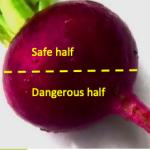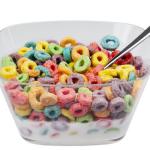Reprinted by permission of McGill University Office for Science and Society.
###
Food & Nutrition
By Rob Shewfelt
The Wizard and the Prophet: Two Remarkable Scientists and Their Dueling Visions to Shape Tomorrow’s World as reviewed by Robert L. Shewfelt
As of May last year, all American restaurant chains with 20 or more outlets have been legally obliged to provide calorie counts on their menus in a bid to help people make less fattening choices. So how's that going then?
Bashing sugar is all the rage in nutrition.
Whole Foods chemists, an incongruity if ever there were one, must have a helluva job. They somehow must explain to suckers customers how the same chemical can be both good and bad for you.
"Beer is proof that God loves us and wants us to be happy." That quote, wrongly attributed to Benjamin Franklin, could still be t
Acai breakfast bowls are available in every trendy smoothie and juice bar, but if you haven’t partaken in this particular superfood fad yet, you haven’t missed out. Turns out acai bowls don’t actually make a healthy start to the day after all.
By now, most of us are aware of the recent Annals of Internal Medicine’s publication of 4 interlocking meta-analyses of the effect of red and processed meat on our health.
It was once just innocent fruit sugar, but fructose now vies for the number one slot as the world’s biggest, baddest nutrient, making us fat and sick. Which is all nonsense of course…
No need to fear fructose!
JAMA reports a new study from the National Health and Nutrition Examination Survey (NHANES) looking at the changes in our national diet.












